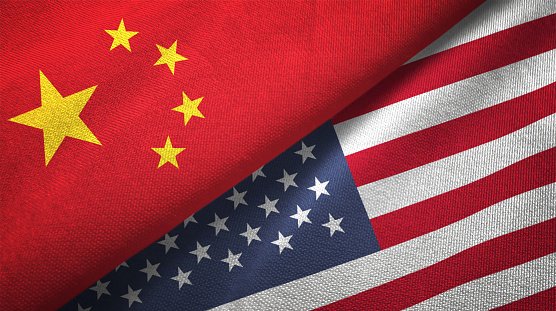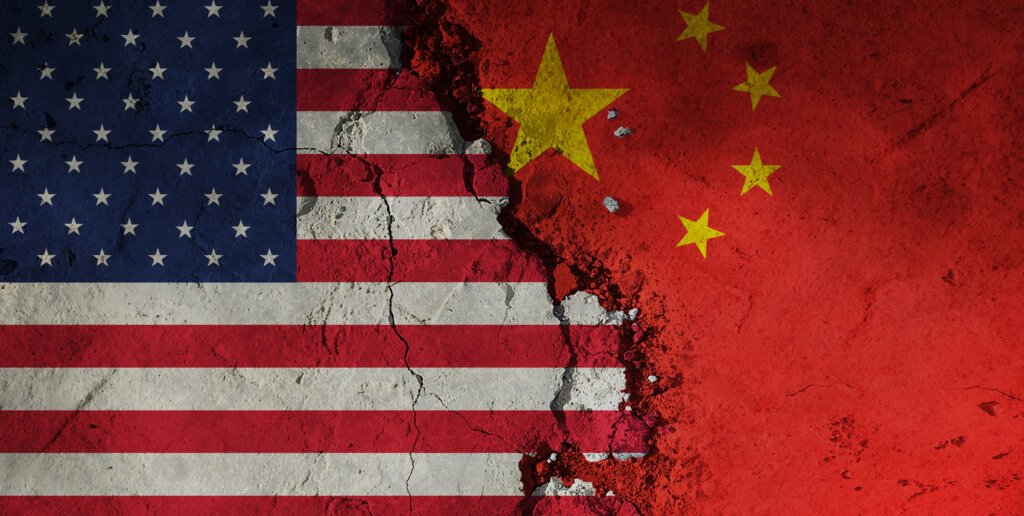- Reports suggest Nvidia and AMD’s China revenue-sharing deal involves a 15% payment for export licences.
- Constitutional experts question if revenue-sharing arrangement violates export tax prohibitions.
For decades, US export controls have operated on a simple principle: companies either get licences to sell restricted technology abroad, or they don’t. But reports of a new deal between semiconductor giants Nvidia and AMD and the Trump administration suggest this binary approach may be changing, with the companies reportedly agreeing to pay 15% of their revenues from Chinese AI chip sales to the US government.
The reported revenue-sharing deal between both chip giants, if confirmed, would represent a shift in how Washington approaches technology export controls and could set a new precedent for US-China trade relations.
What the reports say
According to multiple media reports citing sources familiar with the matter, Nvidia plans to share 15% of the revenue from sales of its H20 AI accelerator in China. AMD would deliver the same share from MI308 revenues. The two chip companies reportedly agreed to the fee structure last week, following months of lobbying efforts by industry leaders.
The reported revenue-sharing arrangement specifically targets Nvidia’s H20 chip and AMD’s MI308, both important for AI applications. The chips were developed after the Biden administration imposed export restrictions in 2023, with the H20 designed specifically for the Chinese market to comply with those limitations.
The path to this deal has been marked by shifting policies and intense lobbying. US President Donald Trump’s administration halted sales of H20 chips to China in April, but Nvidia last month announced that the administration said it would allow the company to resume sales, and it hoped to start deliveries soon.
It followed a separate report from the Financial Times that the US Commerce Department started issuing H20 licenses on Friday, two days after Nvidia Chief Executive Officer Jensen Huang met President Donald Trump. The timing suggests the personal involvement of industry executives in securing the arrangement.
Why these reports matter
While export controls for sensitive products are nothing new, reports of charging a company 15% of its revenue to sell a particular product to a particular country would be unprecedented if confirmed. The reported arrangement would represent a shift from traditional export control mechanisms, which typically involve licensing fees or outright bans, to a revenue-based approach.
For the companies involved, China represents a massive market opportunity. Despite export restrictions, Chinese demand for AI chips remains robust as the country continues to invest heavily in artificial intelligence capabilities. The 15% payment allows these companies to maintain market access while demonstrating compliance with US national security concerns.
The reported deal has already attracted significant criticism from legal experts who question its constitutional validity if implemented. “In addition to the policy problems with just charging Nvidia and AMD a 15% share of revenues to sell advanced chips in China, the US Constitution flatly forbids export taxes,” Peter Harrell, the White House senior director for international economics under the Biden administration, said in a Sunday post social media.
Christopher Padilla, a top export control official in the George W. Bush administration who is now a senior adviser with the Brunswick Group consulting firm, echoed those fears, describing the deal as “unprecedented and dangerous.”
The constitutional prohibition referenced stems from Article I, Section 9, Clause 5 of the US Constitution, which states, “No Tax or Duty shall be laid on Articles exported from any State.” The clause was designed to prevent the federal government from imposing taxes specifically on exported goods.
Industry response and market impact
“We follow the rules the US government sets for our participation in worldwide markets,” a Nvidia spokesperson said in a statement. The company added: “While we haven’t shipped H20 to China for months, we hope export control rules will let America compete in China and worldwide.”
AMD has not yet responded to requests for comment regarding the reported arrangement. It was not immediately clear how the government would deploy the presumed billions of dollars in fees collected if the reports prove accurate.
From a business perspective, the revenue-sharing model allows both companies to maintain their competitive positions in the crucial Chinese market. For Nvidia, especially, which has seen explosive demand for its AI chips globally, maintaining access to China’s market – even with a 15% revenue reduction – is likely preferable to being shut out entirely.
Broader trade implications
The arrangement comes amid a broader context of evolving US-China trade relations. The semiconductor industry has become a key battleground in technological competition between the world’s two largest economies. The US has progressively tightened export controls on advanced chips since 2022, citing national security concerns about their potential use in military applications and AI development.
The reported revenue-sharing approach could represent a new model for managing technology exports to strategic competitors if implemented. Rather than implementing outright bans, which can harm US companies’ competitiveness, this reported arrangement would allow for continued market access while extracting value for the US government.
What happens next?
The constitutional challenges to the reported arrangement are likely to continue if it’s confirmed, potentially leading to legal challenges that could test the boundaries of executive authority over export controls.
Even without the revenue-sharing provision, Donald Trump’s decision to ease the chip-sale restrictions on Nvidia was controversial, with officials from both parties expressing concern that the flip-flopping policy would erode further any trust in US export controls.
The precedent that could be set by this reported deal might influence how other technology exports are managed, particularly for companies seeking to maintain access to strategically important markets while complying with national security restrictions.
The bottom line
While neither the US government nor the companies involved have officially confirmed these reports, the potential implications are far-reaching. If true, the revenue-sharing model between Nvidia and AMD could reshape how American technology companies access overseas markets under national security restrictions.
For China, such an arrangement might accelerate its push toward semiconductor self-sufficiency, as Beijing has been investing heavily in domestic chip manufacturing precisely to reduce dependence on foreign suppliers. The prospect of US companies paying their government a premium to sell in China could provide additional motivation for Chinese firms to develop competitive alternatives.
Other US technology companies will be watching, as the model could extend beyond semiconductors to other strategic technologies like quantum computing, advanced software, or telecommunications equipment. Companies in sectors deemed critical to national security might face similar revenue-sharing requirements when seeking to operate in sensitive markets.
The broader tech industry could also see fragmentation accelerate, with American companies paying premiums to access certain markets while competitors from other countries operate without constraint. This could reshape global supply chains and partnerships in ways that extend far beyond the current US-China technology rivalry.
Until official confirmation emerges, however, these remain speculative scenarios based on unverified reports. What’s clear is that any such arrangement would mark a significant evolution in how economic statecraft intersects with private enterprise.

Want to learn more about AI and big data from industry leaders? Check out AI & Big Data Expo taking place in Amsterdam, California, and London. The comprehensive event is co-located with other leading events including Intelligent Automation Conference, BlockX, Digital Transformation Week, and Cyber Security & Cloud Expo.
Explore other upcoming enterprise technology events and webinars powered by TechForge here.







